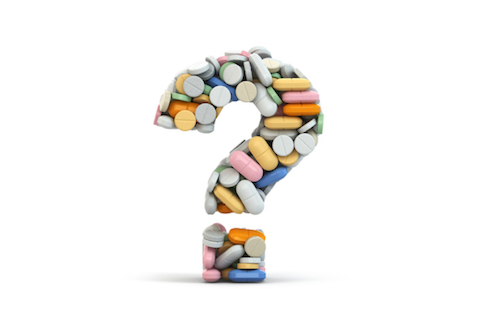The Vitamin Controversy: Are Vitamin Supplements Good For You?
Almost everyone knows that vitamins and minerals are essential for life. Vitamin…

Almost everyone knows that vitamins and minerals are essential for life. Vitamin A is important for good vision. Several types of vitamin B are especially important for digestion and a healthy nervous system. There are many others.
Few people are aware that vitamins and minerals can have adverse effects. We think of multivitamin/mineral supplements (MVMs) as good for our health, as a kind of “insurance” that we’re getting enough of the nutrients we need. We hope they prevent getting diseases, whether something as minor as a common cold, or as frightening as cancer.
Those beliefs were shattered in December, 2013, when a prestigious medical journal, the Annals of Internal Medicine, published results of research that changed the recommendations for the use of MVMs. The physicians at the Johns Hopkins Hospital wrote, “The message is simple: most supplements do not prevent chronic disease or death, their use is not justified, and they should be avoided. This message is especially true for the general population with no clear evidence of micronutrient deficiencies.”
New guidelines state that “nutrients should come primarily from foods. Foods are nutrient-dense, mostly intact forms, and contain not only the essential vitamins and minerals, but also dietary fiber and other naturally occurring substances that may have positive health effects.
Nonetheless, dietary supplements may be advantageous in specific situations to increase intake of a specific vitamin or mineral.”
For people with certain health problems, specific MVMs might be helpful. They may be useful in macular degeneration (deterioration of sight).
A few studies show that MVMs might reduce the risk of cancer in certain men. Most research shows, however, that healthy people who take an MVM do not have a lower chance of getting cancer, heart disease, or diabetes.
Women who might become pregnant should get 400 IU (International Units) of folate per day. Pregnant women should take an iron supplement. Breast-fed or partly breast-fed babies should receive vitamin D. Postmenopausal women may use calcium and vitamin D to increase bone strength and reduce the risk of fractures.
People over age 50 should get recommended amounts of vitamin B12 as a supplement because they might not absorb enough of the B12 that is found in food.
MVMs at recommended intake levels don’t usually interact with medications. Medicine to reduce blood clotting, such as warfarin, may be less effective when taking vitamin K.
Particular attention should be paid to getting too much vitamin A. In smokers it might increase the risk of lung cancer. Adult men and postmenopausal women should avoid more than 18 milligrams of iron per day. Iron supplements are the leading cause of poisoning in children younger than 6 years. Supplements should be out of reach of children.
Spotlight on Folate
Folate is a B-vitamin that is naturally present in many foods. A form of folate, folic acid, is used in dietary supplements and fortified foods. Folate is important for the making of DNA and other genetic material, and in cell division.
The amount of folate needed varies with age. All women and teen girls who could become pregnant should consume 400 mcg (micrograms) of folic acid daily from supplements, fortified foods, or both, in addition to the folate they get naturally from foods. You can get recommended amounts in:
- Vegetables (especially dark-green leafy vegetables such as spinach)
- Fruit and fruit juices (especially oranges)
- Nuts, beans, and peas (such as peanuts, black-eyed peas and kidney beans)
- Grains (including whole grains, fortified cold cereals, and enriched flour products)
- Folic acid is added to many grain-based products – check the labels
- Beef liver is high in folate, but is also high in cholesterol, so amounts should be limited
Folate is available in multivitamins and prenatal vitamins. It is also available in B-complex dietary supplements, and alone.
Folate deficiency can result in a type of anemia which causes weakness, fatigue, irritability, headache, heart palpitations and shortness of breath. It can also cause open sores on the tongue and inside the mouth. Women who don’t get enough folate are at risk of having babies with neural tube defects (abnormal development of the spine and brain), such as spina-bifida. Folate deficiency increases the likelihood of having a premature or low-birthweight baby.
Moderate amounts of folate taken before cancer develops might decrease cancer risk, but high doses taken after cancer is present may speed its progression (especially colorectal cancer.) Folate does not reduce the risk for heart disease but some studies have shown that a combination of folate with other B vitamins might help prevent stroke. It does not improve cognitive function or slow the progression of dementia, including Alzheimer’s disease.
Low folate levels can increase risk for depression, and lessen the effectivness of antidepressant medications. Folic acid supplements might make antidepressant medications more effective.
Folate in large amounts can hide a vitamin B12 deficiency, and anemia associated with it. High doses of folic acid may increase the risk of colorectal cancer and possibly some other cancers in certain people. It should not be consumed in greater amounts than the safe upper limit, unless recommended by a health care provider.
The current recommendations eliminate confusion about multivitamins and folate use. The “should I or shouldn’t I” debate is over. The Hopkins physicians wrote, “We believe that the case is closed – supplementing the diet of well-nourished adults with mineral or vitamin supplements has no clear benefit and may even be harmful.” Nutrients should come from food. Before taking any supplements of any kind, or if you are concerned that you may have a vitamin deficiency, see your healthcare provider.
A bonus: Multivitamins can get expensive. Think of the money you’ll save!
